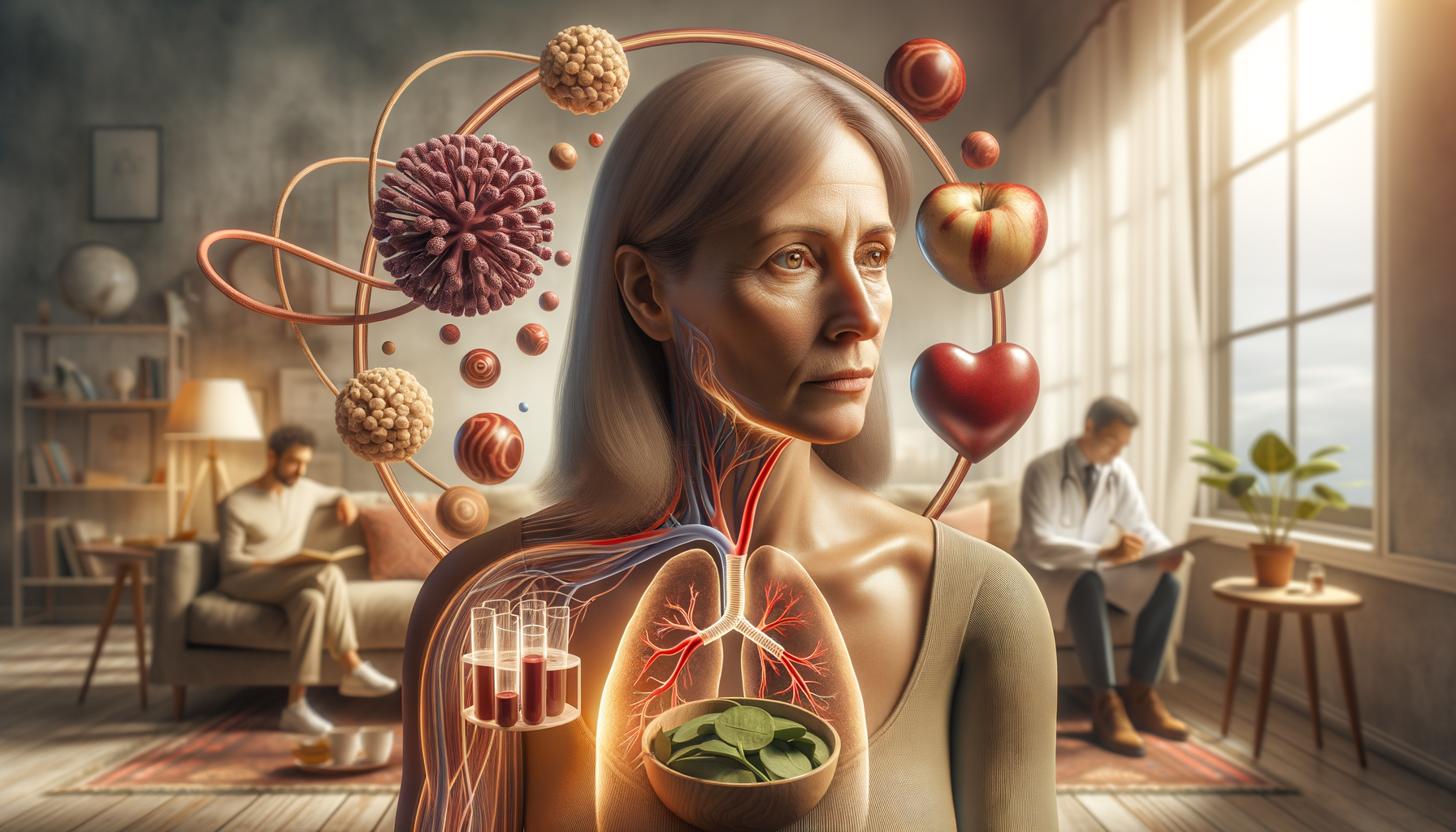Iron is a vital nutrient that our bodies need to function correctly. It’s involved in numerous essential processes, including the transportation of oxygen in the blood and energy production in our cells. When iron levels drop, it can lead to a spectrum of health issues. Understanding the symptoms and causes of iron deficiency can help in managing it effectively and maintaining good health.
Why Iron Matters
Iron plays several important roles in keeping our body thriving:
- Oxygen Transport: Iron is a core component of hemoglobin, the protein in red blood cells that carries oxygen from the lungs to body tissues. Without enough iron, oxygen transport is impaired, affecting every cell in the body.
- Energy Production: Iron is part of myoglobin in muscles, which facilitates the storage and use of oxygen. This process is critical for muscle function and endurance.
- Enzymatic Functions: Iron assists in various enzymatic reactions necessary for metabolism, which fuels our daily activities.
The following table summarizes the roles of iron in the human body:
| Role | Description |
|---|---|
| Oxygen Transport | Integral part of hemoglobin, facilitates oxygen delivery to tissues. |
| Energy Production | Component of myoglobin in muscles, aids in oxygen use and storage. |
| Enzymatic Functions | Participates in enzymatic reactions crucial for metabolism. |
Signs That You’re Low on Iron
Recognizing the symptoms is key to tackling iron deficiency early. Common signs include:
- Extreme fatigue and weakness: A persistent tired feeling that makes even day-to-day tasks seem daunting.
- Poor concentration: Difficulty focusing on tasks, affecting productivity.
- Swelling in ankles and joints, indicating fluid retention issues.
- Hair loss and brittle hair: Hair may start falling out more than usual, and what remains may be weak.
- Pale skin, often more noticeable in the face, lining of the eyes, and nails.
- Variations in appetite, including a smooth or inflamed tongue.
- Increased frequency of infections: Weakness in the immune system due to low iron levels.
Uncovering the Causes
Iron deficiency can primarily arise from two factors:
- Poor Diet: Inadequate intake of iron-rich foods like meat, beans, and fortified cereals can lead to decreased iron reserves.
- Blood Loss: Major or chronic blood loss from injuries, surgeries, or heavy menstrual periods can deplete iron stores quickly.
Potential Complications from Untreated Iron Deficiency
If iron deficiency goes unchecked, it can lead to serious health complications:
- Iron-Deficiency Anemia: Manifests with pale skin, exhaustion, and lethargy. It can cause heart palpitations and alter taste perception. Immediate attention is crucial to prevent more severe outcomes.
- Restless Leg Syndrome (RLS): It’s not just insomnia; it’s an uncontrollable urge to move the legs, mainly when at rest, which disturbs sleep and can be linked to low iron levels.
- Mouth Ulcers: These painful sores can hint at deeper nutritional deficiencies and should be evaluated by a medical professional.
- Tinnitus and Hearing Loss: Ringing in the ears is more than just an annoyance; it could be related to dropping iron levels.
- Hair Loss: What seems like a bad hair day could signal iron issues. Fragile and thinning hair requires closer scrutiny of your diet.
- Pica: An unusual craving for inedible items such as dirt or clay, often seen in severe deficiency and during pregnancy, needs medical attention.
It’s clear that maintaining adequate iron levels is crucial for overall health. If you’re experiencing any of the symptoms mentioned, consider consulting a healthcare provider and exploring dietary adjustments to ensure you’re getting enough of this key mineral.

